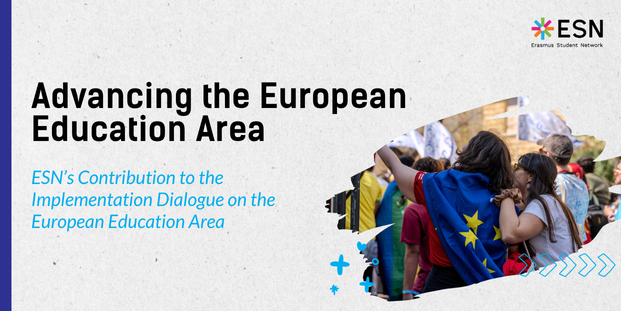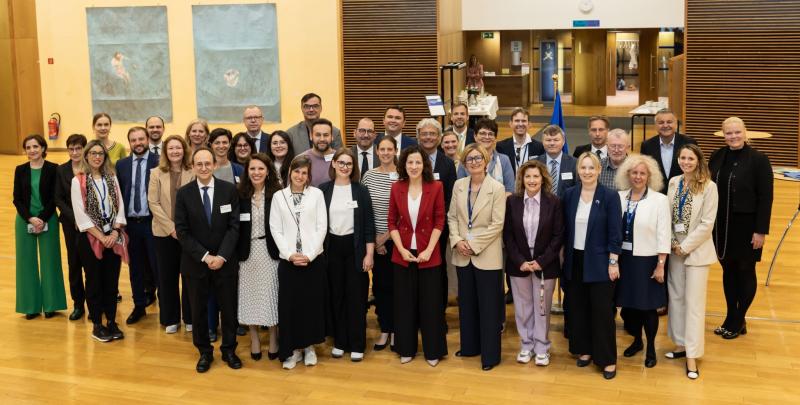
On the 3rd of June 2025, the Erasmus Student Network contributed to the Implementation Dialogue on the European Education Area (EEA), bringing forward the student perspective on key priorities such as simplification, efficiency, and impact. Representing mobile learners across 46 countries, ESN’s input builds on years of grassroots experience and policy engagement, aimed at supporting the realisation of an inclusive and future-ready EEA.
ESN's contribution highlighted the need to focus on consolidation, impact, and co-creation by amplifying what Erasmus already provides. Beyond policy design, it is the implementation that will determine whether the EEA becomes a lived reality.

At the heart of ESN’s message is the belief that education must be recognised as a strategic priority for Europe. This view is reinforced by the Letta report, which calls for the establishment of a “fifth freedom” within the Single Market: the free movement of knowledge, education, research, and innovation. ESN fully supports this vision. The European Education Area must be understood as central to the EU’s future, both socially and economically.
To build a resilient, competitive, and cohesive Europe, education must be prioritised not only in rhetoric but in practice. ESN’s contribution reflects the view that the success of the European Education Area depends on its ability to deliver concrete benefits for students across borders and backgrounds.


Follow ESN